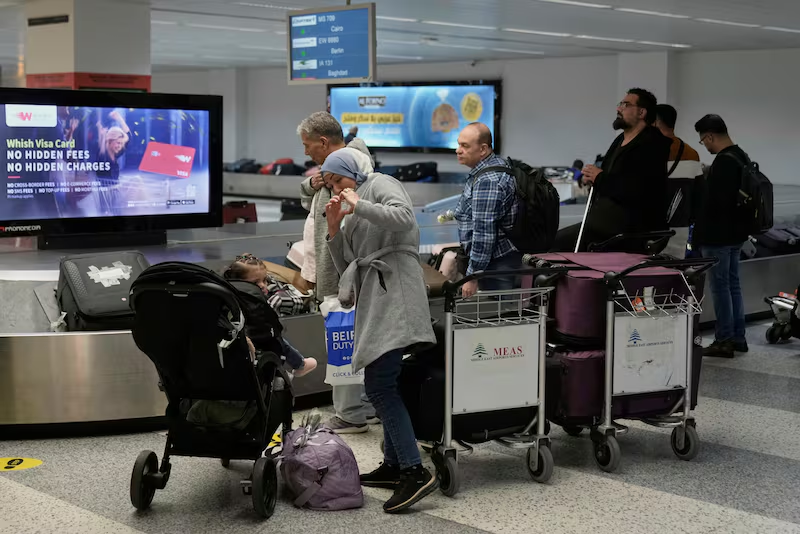
The come-back: First Emiratis Land in Lebanon After Four-Year Absence

New breath in Lebanese-Emirati relations
First of all, you only have to listen to the first arrivals to understand the emotion involved in such a trip. “I’m so happy. It’s like a nightmare has been lifted. It’s a dream” says Khaled Khaled, an Emirati influencer, on his arrival at Beirut's Rafic Hariri airport. “We consider ourselves Lebanese as much as you. I’m planning to go everywhere in Lebanon. Everyone I know is coming.” These first arrivals, warmly welcomed by Paul Morcos, Lebanese Minister of Information and representative of President Joseph Aoun, embody much more than travelers: they are the first ambassadors of a long-awaited diplomatic and human rapprochement between Beirut and the United Arab Emirates.
The decision to lift the travel ban on Lebanon was taken after Lebanese President Joseph Aoun's official visit to Abu Dhabi in April 2025, where he was received by the President of the United Arab Emirates, Mohammed bin Zayed al-Nahyan. This visit marked a renewal in bilateral relations between the two countries. In a joint communiqué, the two Heads of State announced their decision to “allow the resumption of travel by citizens following the implementation of the necessary measures to facilitate travel and tourism between the two countries”, while expressing their willingness to strengthen the level of diplomatic representation.
A changing political context
The lifting of this ban is not insignificant. In 2021, the United Arab Emirates, like several other Gulf Cooperation Council states, had suspended travel to Lebanon due to a deterioration in diplomatic relations and security concerns, notably linked to the growing influence of Hezbollah. But today, the political and security context is changing. Indeed, President Joseph Aoun has been elected, a new government is in place, and a series of positive signals aimed at reassuring Arab partners by reducing Hezbollah's influence have been put in place.
For his part, Prime Minister Nawaf Salam also tried to calm concerns, telling Gulf ambassadors that the security services were ready to guarantee protection for Arab visitors. “We listened to their concerns and assured them that we would work to address them,” he said. He also outlined the measures taken to reinforce security at Beirut airport, adding that the government remained determined to overcome any obstacle that might prevent the return of Arab tourists.
Perspectives
The challenges of this recovery go beyond the diplomatic sphere. Lebanon is seeking to revitalize its economy by focusing on Arab tourism, once one of its main driving forces. Minister Paul Morcos, at the airport, subtly reminded that Lebanon is in its natural role when it welcomes its Emirati and Gulf brothers and he hopes to welcome all Arab nationals soon. He also spoke of the objective of once again developing tourist and commercial exchanges, while welcoming the series of measures taken by the government to secure tourist centers, hotels and regions of the country. “We want to encourage travel to Lebanon, thanks to the measures taken by the government, at Beirut airport, in tourist centers, hotels, restaurants, tourist regions”. The Emiratis' return to Lebanon marks the start of a new phase, but much remains to be done to rebuild mutual trust. The Emirates are home to around 90,000 Lebanese citizens, a figure that rises to almost 200,000 if binationals are included. Yet in recent years, obtaining tourist or business visas for the Emirates has been difficult for the Lebanese, due to ongoing diplomatic tensions. As a result, President Aoun has expressed his wish to facilitate visa procedures for his compatriots, in a spirit of mutual openness. Discussions are underway to ease administrative constraints and enable the restoration of human, economic and cultural flows between the two countries.
Sources :

